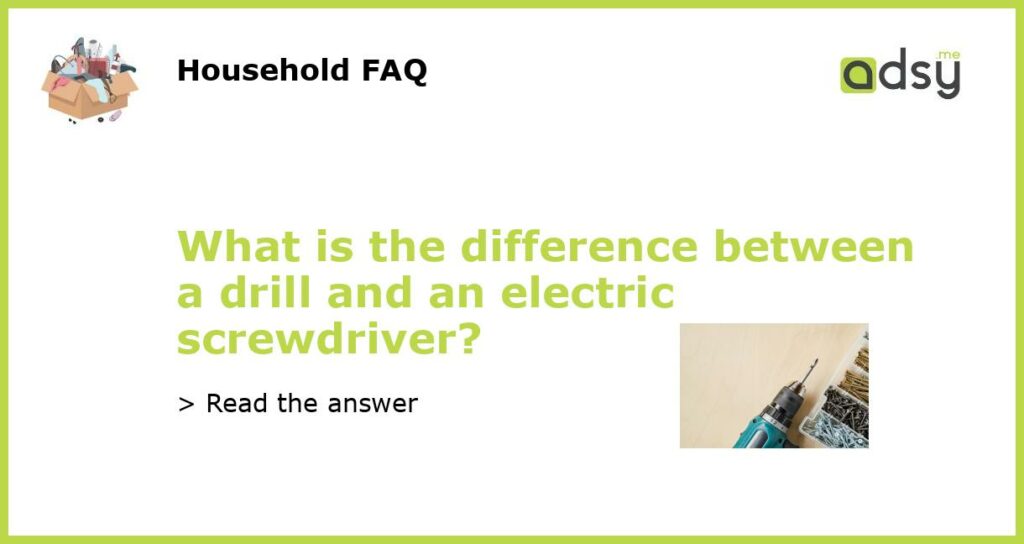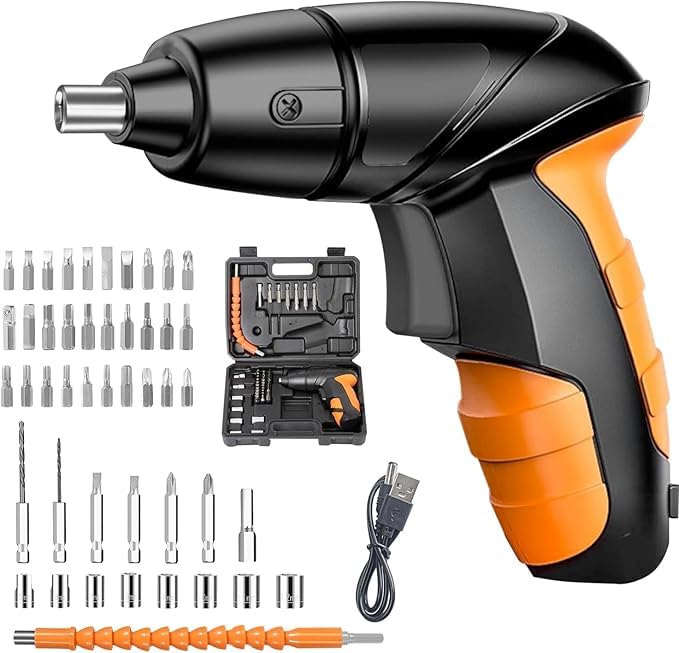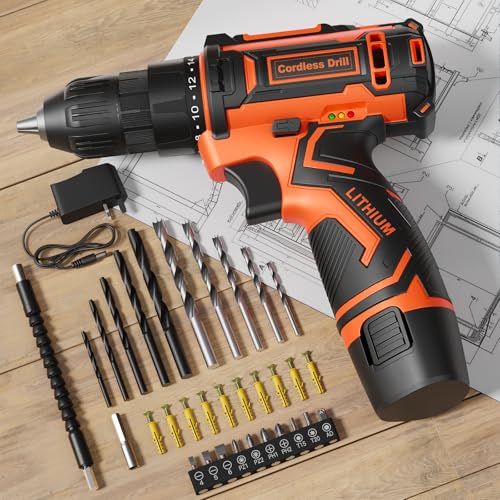Difference Between Drill and Electric Screwdriver: An Introduction
When it comes to DIY projects, the drill and electric screwdriver are some of the most commonly used tools. They look almost similar and they both have rotating bits, but what sets them apart? In this article, we explore the difference between a drill and an electric screwdriver.
Functionality: What is a Drill?
A drill is a power tool that is used to make holes on surfaces such as wood, concrete, and metal. It has a rotating bit that is driven by an electric motor, and as the bit rotates, it cuts through the material. A drill comes in different types, including cordless, corded, and hammer drills, each designed for specific tasks.
Functionality: What is an Electric Screwdriver?
An electric screwdriver, on the other hand, is a tool that is specifically designed to tighten or loosen screws. It has a rotating bit that can be changed to fit different types of screws. Some electric screwdrivers have adjustable torque, which allows you to control the amount of force applied on the screw.
Power and Speed: Drills vs Electric Screwdrivers
Drills are typically more powerful than electric screwdrivers and can handle tougher materials. They also have variable speed settings, which allow you to adjust the speed according to the material being drilled. Electric screwdrivers, on the other hand, have lower power and are best suited for light-duty tasks such as assembling furniture or installing light fixtures. They also have a fixed speed, which is typically lower than that of a drill.
Bits: Compatibility and Versatility
Both a drill and an electric screwdriver use bits that can be changed to fit different types of screws or drill bits. However, drills have a wider range of compatible bits, making them more versatile. You can use a drill to drive screws or make holes of different sizes. Electric screwdrivers are limited to screwdriving bits only.
The Verdict: Which One to Choose?
Ultimately, the choice between a drill and an electric screwdriver depends on the task at hand. If you need to make holes on tough materials, a drill is the better option. But if you’re working on light-duty tasks that involve screwing, an electric screwdriver is more suitable.
Overall, both tools are useful in their own right and are must-haves in any toolbox. Ensure that you choose the right tool for the job, and always follow the manufacturer’s instructions for safe use.






